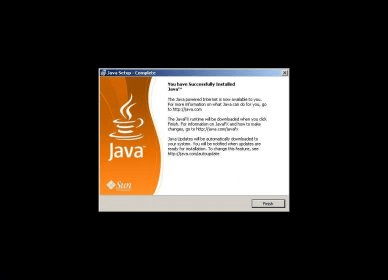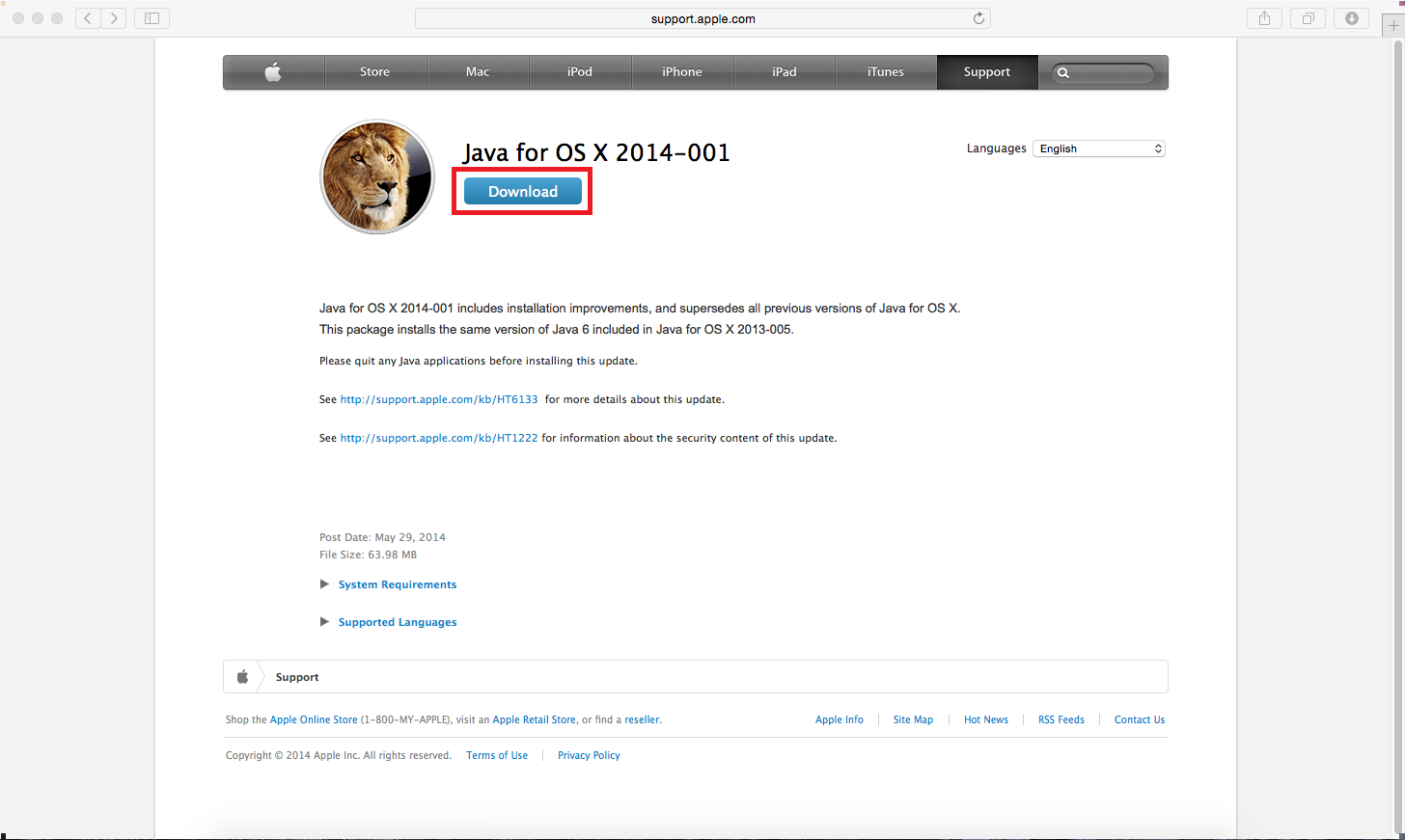

- #Apple java se 6 runtime for mac os x
- #Apple java se 6 runtime download
- #Apple java se 6 runtime mac
The Ant target above copies the Oracle Java 7 Package (JRE) from your You can find here some additional AppBundlerTask options, as this example shows only how how it works in its simplest form.Īfter you run the bundle target with ant bundle you will find MyJavaMacOSXApp.app in the /dist directory. Note: You need to replace MyJavaMacOSXApp with your application data.
#Apple java se 6 runtime download
Download appbundler-1.0.jar and move it to /lib/appbundler-1.0.jar.Note: There are pros and cons for both approaches, but you need the last one with your own JRE if you want to go to the Apple App Store with your bundled app. Or the Oracle Java 7 JRE you inline in your packaged application
#Apple java se 6 runtime mac
With Oracle's app bundler you have now the choice to run your packaged app with the default Oracle Java 7 Package installed on your Mac here:
#Apple java se 6 runtime for mac os x
To create app bundles based for Mac OS X 10.7.3 and onwards based onĪnd above, you have to use Oracle's app bundler There is a video, where Scott Kovatch, the lead engineer for the Mac OS X port of the Java platform at Oracle is talking on DEVOXX about how app bundling for Oracle Java 7 is working in great detail. The underlying technical issue you are facing is Apple's native Objective-C based JavaAppLauncher binary and the format it uses in ist is only working with Apple's Java 6 System Packages and the JavaAppLauncher ist combination coming from Oracle is only working for Oracle's Java 7 Packages.Īs you are using a JavaAppLauncher supporting Apple's Java 6 System Packages, it will always pick up the Apple Java 6 System Package installed on your Mac. This allows you to create and deploy Oracle Java 7 based application bundles on Mac OS X 10.7.3 and onwards. As a consequence you have to go for the Oracle Java 7 Third Party package and their application package bundle solution. The bundler you were using could be, for example, Jar Bundler provide by Apple which only works for Apple's Java 6 System Packages.Īpple has given up support for Java as an integrated System Packages from Java 7 and later. Your Mac OS X application bundle has been created with an app bundler which is not compatible with Oracle's Java 7 package. I guess my current JDK is pointing to something wrong.

System/Library/Frameworks/amework/Commands/java -version java version "1.6.0_37" Ls /Library/Java/JavaVirtualMachines jdk1.7.0_12.jdk Library/Internet\ Plug-Ins/ugin/Contents/Home/bin/java -version java version "1.7.0_12-ea" usr/libexec/java_home /Library/Java/JavaVirtualMachines/jdk1.7.0_12.jdk/Contents/HomeĮcho $JAVA_HOME /Library/Java/JavaVirtualMachines/jdk1.7.0_12.jdk/Contents/Home/ Library/Java/JavaVirtualMachines/jdk1.7.0_12.jdk/Contents/Home My Java system environment looks like this: Thus there is nothing wrong with the application. When I run it with Eclipse by selecting JRE 7, it runs properly. I am using the Mac only for testing purposes. I tried most of the things mentioned in different sites, but I was unable to fix this issue. The default system output of java -version is showing 7. Instead using Java 7 from Oracle, it's using Java 6 from Apple. I am testing my current application with Mac OS X which has Java 7 from Oracle installed.


 0 kommentar(er)
0 kommentar(er)
